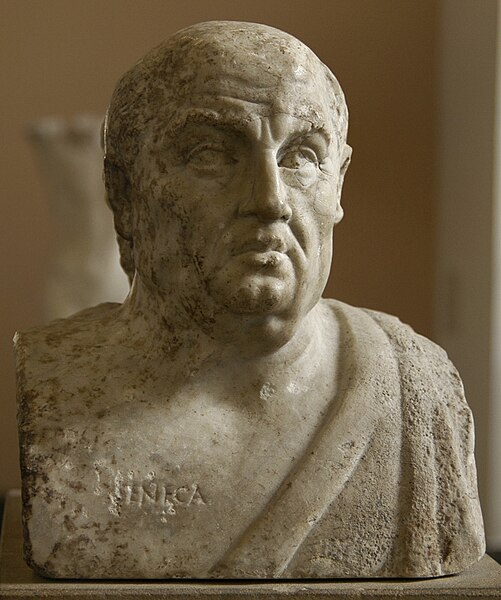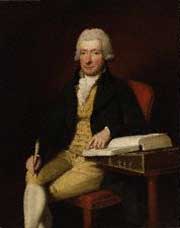
Seneca
Epistles of Lucius Annaeus Seneca
The Right Use of Reading or Hearing the Philosophers
「1st c. BCE」Seneca, “The Right Use of Reading or Hearing the Philosophers,” Epistle CVIII in vol. 2 of The Epistles of Lucius Annæus Seneca, translated by Thomas Morell, in two volumes (London, 1786; Google Books: Online Library of Free eBooks).
But since I have begun to tell you with how much more earnestness I applied myself to philosophy, when a young man, than now when I am old, I shall not be ashamed to confess to you, what affection for Pythagoras Sotion inspired me with. He taught me, why Pythagoras abstained from animal food, and why after him Sextius: their reasons were different, but, both, very great. Sextius thought, that there was food enough for man in the world without shedding blood; and that the taking pleasure in butchering helpless animals, only inspired men with cruelty: he added hereunto, that luxury was not to be encouraged, and supposed of meats, and particularly such as are foreign to our constitutions are by no means a preservative of health, but the contrary. Whereas Pythagoras held that there was a sort of relationship among all animals, and a certain intercourse, whereby they passed out of one form into another. No soul either of man or beast (if you believe him) perisheth; nor indeed ceaseth any longer than while it is transmigrating into another body. And that after many revolutions and changes from one sort of body to another, it returns again to man. In the mean while this opinion had no small effect, in making men dread wickedness, and especially parricide: since it is possible they might unknowingly light upon the soul of a parent, and with knife and teeth violate the body wherein was lodged some kindred spirit.
When Sotion had explained to me these things, and confirmed them by his arguments… I began to abstain from eating flesh, and at the year’s end, such abstinence became no only easy to me, but pleasant: I fancied my spirit more alert and free than it was before; nor to this day can I pretend either to affirm or deny it.
But you will ask, perhaps, how I came to discontinue this way of life? My youth fell out in the reign of Tiberius Cæsar, at what time the sacreds of some foreign nations were banished Rome; and among other superstitions, this was alledged as one, the abstaining from the flesh of certain animals. At the request of therefore of my father, who was no great admirer of philosophy, but hated reproach, I returned to the eating flesh as usual.…;
…These thing I have related to you, Lucilius, to shew you, how readily and earnestly youth attend to the knowledge and practice of what is good; if there is any one to instruct them, and one to push them on: but on the one hand, there is generally a great defect or fault in the instructor, who teaches them rather how to dispute, than how to live; and, on the other, in the scholars, who bring with them to their master the design of having their tongue or wit polished, and not the mind. For whence, what before was philosophy, is now become philology. (266-7)



